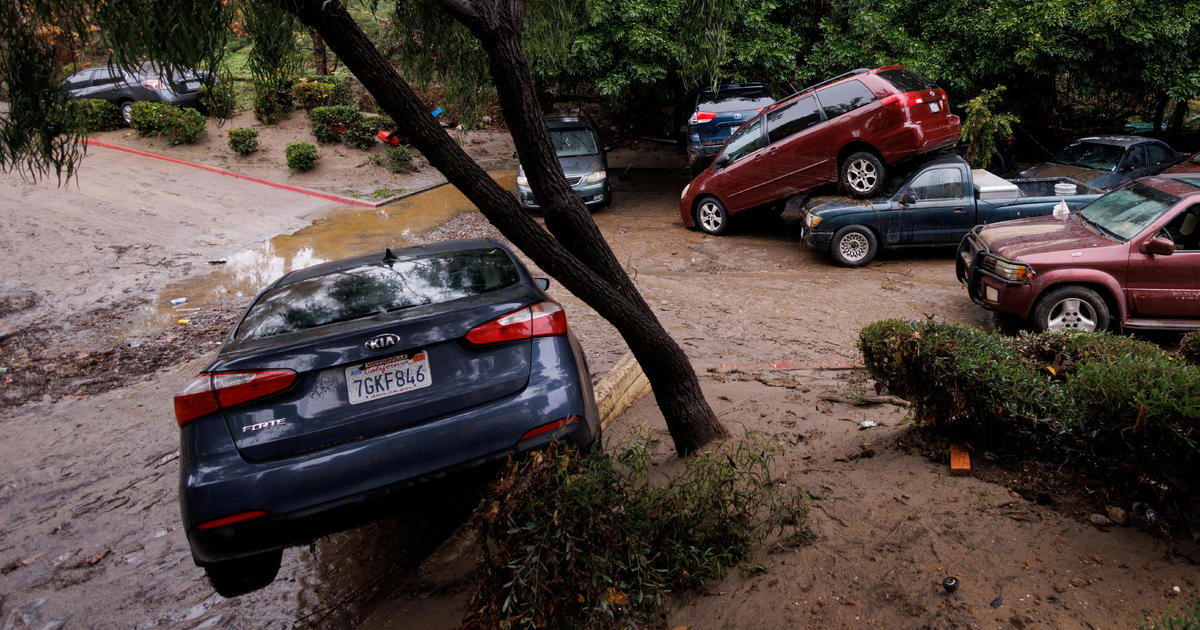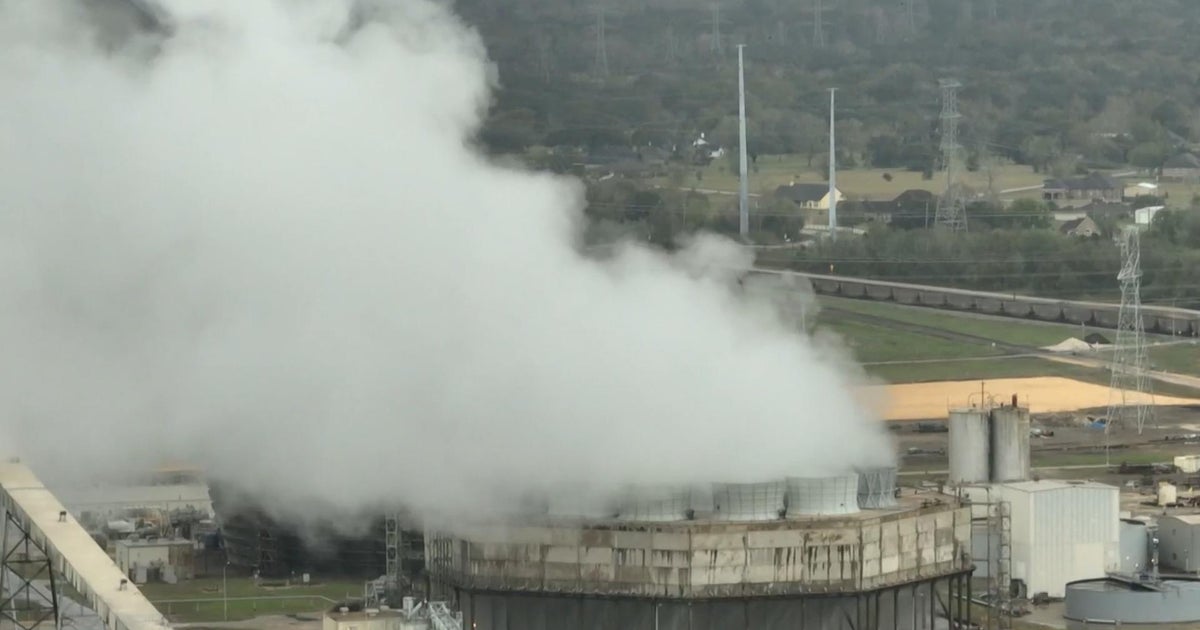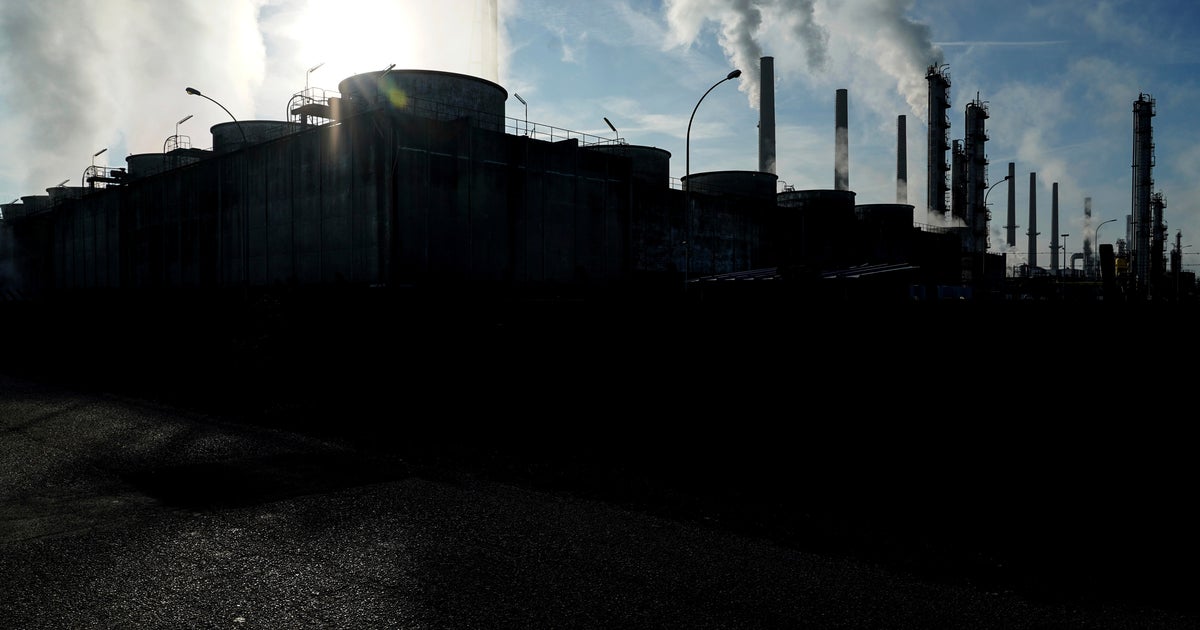CBS News
San Diego just saw its rainiest day in January history as officials warn of the “fragile state” of the city’s infrastructure

San Diego’s usually sunny days were clouded by a new record on Monday – the “wettest day in January history,” as officials declared the widespread flooding it caused revealed a “fragile state” in the city’s infrastructure.
The National Weather Service said that the Southern California city – the state’s second most populous – saw 2.73 inches of rain on Monday, beating the previous record for the wettest January day that was set on Jan. 31, 1979. That same day now ranks fourth among the most rain recorded in a single day in 174 years of record-keeping history in the city.
The most rain ever recorded in a single day in San Diego was 3.34 inches in December 1854.
The National Weather Service described the rainfall with a single word – “wow.”
While there were “a few isolated showers” in the morning, the service’s local station said that Tuesday “is looking much, much quieter.” Most rain in the area was expected to be done by late morning, “with some showers lingering in the mountains through the afternoon.”
Hundreds of miles across California were impacted by Monday’s weather systems, with parts of Southern California seeing rare widespread flash flooding.
CBS News correspondent Jonathan Vigliotti said that the rain fell so quickly in San Diego, that it turned roads into “raging rivers powerful enough to lift entire cars.” The fire department told Vigliotti that hundreds of people had to be rescued – in some cases, with boats.
“The highest part of our house was our kitchen island,” one local resident told Vigliotti, “and that’s where we were sitting on top of until we were able to get out safely.”
San Diego Mayor Todd Gloria has declared a state of emergency for the city, saying in his proclamation that the storm system threatened “conditions of disaster and extreme peril to the safety of persons and property.” The city’s Stormwater Department said the widespread flooding seen across San Diego “is what happens when heavy rainfall overwhelms an aging stormwater system with limited capacity.”
“Monday’s record rainfall revealed the fragile state of the City’s stormwater infrastructure and the need for significant investments going forward to prevent the current situation from becoming the new normal for San Diego,” the city said in a release on Tuesday. “Prior to the storm, the City had several hundred employees out in the field clearing storm drains and doing other prep work to help reduce flood risk citywide.”
Extreme precipitation events are expected to become more frequent as global temperatures continue to increase. As explained by the Environmental Protection Agency, warmer air temperatures contribute to warmer ocean temperatures, thereby increasing the amount of water that evaporates into the atmosphere.
“When more moisture-laden air moves over land or converges into a storm system, it can produce more intense precipitation—for example, heavier rain and snow storms,” the EPA says. “The potential impacts of heavy precipitation include crop damage, soil erosion, and an increase in flood risk due to heavy rains —which in turn can lead to injuries, drownings, and other flooding-related effects on health.”
Jonathan Vigliotti contributed to this report.
CBS News
Here’s how much more it will cost to heat your home this winter

Americans are expected to spend more money heating their homes this winter than on holiday gifts, according to new research.
The elevated cost of staying warm indoors amid cold outdoor temperatures comes after an unusually hot summer, that led to households spending bigger shares of their budgets on cooling costs, compared with previous years, according to a report from the National Energy Assistance Directors Association (NEADA).
On average, spending on home heating this winter is projected to increase by 8.7% to $941, up from $866 last winter. The increased costs are attributed in part to both expected colder temperatures in the Northeast and Midwest states.
The new average expenditure on heating costs outpaces the $902 the average household is expected to spend on Christmas presents this year, according to a forecast from the National Retail Federation.
What’s driving up home heating costs?
There are different ways to keep residences warm. Families that use electricity to heat their homes are expected to face the largest increase in costs — more than 14% — which will bring the total up to $1,189 from $1,040 from mid-November through mid-March, which NEADA considers to be the winter period.
Driving up prices is the rising cost of updating and maintaining the electric grid. Plus, colder weather is expected to lead to increased consumption.
“It’s colder, and the cost of electricity is up as the grid is rebuilt. So we’re seeing both higher prices and greater usage,” NEADA Executive Director Mark Wolfe told CBS MoneyWatch.
Natural gas, propane and heating oil cost differences
Natural gas and propane users are also expected to be hit with bigger bills this winter. Heating costs for natural gas are up just over 3%, for an average cost of $634 for the winter period, compared with $615 for 2023-2024. Costs are expected to rise only modestly in line with wholesale prices.
Propane costs are up 4.4%, with families expected to spend an average of $1,231 heating homes, up from $1,179 last season.
Heating oil costs, by contrast, have declined 2.7%, which means average spending this winter will be $1,518, down from $1,560 last winter.
Early start to the season
November was colder than usual, with temperatures dropping prematurely after a “very expensive summer” of heat waves straining cooling resources, said Wolfe.
Blame climate change for the big swings in temperature, he added.
“Weather conditions can be very unpredictable even though over time, winters are getting warmer and summers are getting hotter. It’s not a straight line, and for consumers, it’s quite upsetting because higher utility bills are coming right before Christmas,” Wolfe said.
Steps to take now
There are steps consumers can take to help keep a lid on home heating costs.
Wolfe urges people to have their thermostats serviced now, before the coldest temperatures of the season roll in. That way, families won’t be on the hook for an emergency repair if their thermostat breaks in the middle of a cold front. A tune-up will also help heating systems run more efficiently, he said.
Always close the furnace flue, or else it will lead heat outside the house, advises Wolfe. Lastly, manually turn down the heat at night, if you can, to save up to 10% on your energy bill.
CBS News
The Pager Plot | Sunday on 60 Minutes

Watch CBS News
Be the first to know
Get browser notifications for breaking news, live events, and exclusive reporting.
CBS News
Mega Millions jackpot soars to $862 million for Friday night’s drawing

There’s still time to become a mega-millionaire for Christmas, but lady luck will have to be on your side.
No one matched Mega Millions‘ all six winning numbers last Tuesday, and the jackpot now stands at $862 million ahead of Friday night’s drawing.
The jackpot has been rolling since it was last won at $810 million in Texas on Sept. 10.
If there is a sole winner, they have a choice between an annuity, with an initial payment and then 29 annual payments, or a one-time lump sum payment. Most winners choose a cash payout.
For Friday night’s drawing, that would be an estimated $392.1 million before taxes.
If won at that level, it would be the largest prize ever won in December and the seventh largest in Mega Millions history.
According to Mega Millions, 13 jackpots have been won during December since the game began in 2002. Three were won in the days after Christmas, while the other 10 were won before Christmas. There has never been a jackpot win on Christmas Day, although over the years drawings have been conducted on Christmas six times – in 2007, 2009, 2012, 2015, 2018 and 2020.
Mega Millions drawings are held on Tuesday and Friday, tickets cost $2. The odds of winning the jackpot are about 1 in 303 million.










